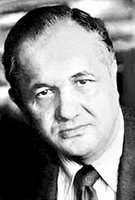
Antonioni's "The Passenger
Michealangelo Antonioni’s “The Passenger”, originally released in 1975, was re-issued in theaters late last year. It’s clear that the film’s leading protagonist, Jack Nicholson, holds a special place in his heart for this existential thriller since he was the primary force behind the film’s re-release (and how often does an actor labor for something like that?). Filmed in languorous long shots that give more precedence to space than the emotions of the actors, this was Antonioni’s bid to capsulate his artistic, European senses into a somewhat commercially viable American vehicle. It succeeds on both levels- carrying forward Antonioni’s penchant for static, internalized filmmaking while never losing sight of the fact that it’s a minor league thriller with big actors (Nicholson and his unnamed girl, Maria Schneider). Nicholson plays David Locke, a journalist working in Northern Africa. After a long search through the desert for someone (or something) that never materializes, Locke returns to his hotel room and finds his neighbor, David Robertson (Charles Mulvehill) dead of a heart attack. Locke inexplicably changes identities with the man, keeping his appointments across the globe and leaving his old life behind. Locke soon discovers that he’s traded places not just with an ordinary man, but a man whose job is to sell guns for various organizations. Soon, Locke finds himself hunted both by his past (in the form of his wife once she receives his things and realizes his passport has been doctored) and Robertson’s shady business partners. Along the way, he enlists the help of a young girl (Schneider), fresh from he role in Bertolucci’s “Last Tango In Paris”.
Sounds like a globe-trotting thriller right? The glory of Antonioni’s film is not in the plot mechanisms…. Very little happens during certain parts of the film and there’s not a single gun fired. The real purpose of the film is to propagate Antonioni’s lust for the inexplicable. Like previous films in his career, there’s no reason for Locke to do what he does. He’s as well adjusted and popular as Lea Massari in “L’ Avventurra” (1960), Antonioni’s main female character who disappears 30 minutes into that film. The remainder of “L Avventurra’s” 2 hours is devoted to the search and bonding of this girl’s friends. In “The Red Desert” (1964), a woman (Monica Vitti) wanders around the city and engages in a tryst for no reason other than her angst in a provincial marriage. There are no outward motivations in “The Passenger” either. Antonioni elicits a fairly muted performance from Nicholson, giving him some passion in the form of Maria Schneider, but even then he cuts beyond their sex scene to expose them lying naked in bed in long shot. “The Passenger” cuts at much deeper ideas- space and time (there is not a single wasted shot in this film, each image opening up and out to give us glimpses of people scurrying about at the edges), frustration, and certainly the basis of identity. The fame of “The Passenger” is in the final five minute shot, which tracks slowly through a barred window and out into a dusty courtyard as every player in the game of Locke’s life collides in a quiet, unsettling moment. But even greater images, to me, include the overhead shot as Nicholson rides over a lake in a wire trolley cart and the traveling shot as Schneider asks, “Why do you run?” and Nicholson replies “turn around and look” and the car speeds down the road, the camera fixed on the trees and road that darts away behind them. There is more truth (and motivation) in that 10 seconds than a lot of films muster in 2 hours. This is one of the best films of the 1970’s.

